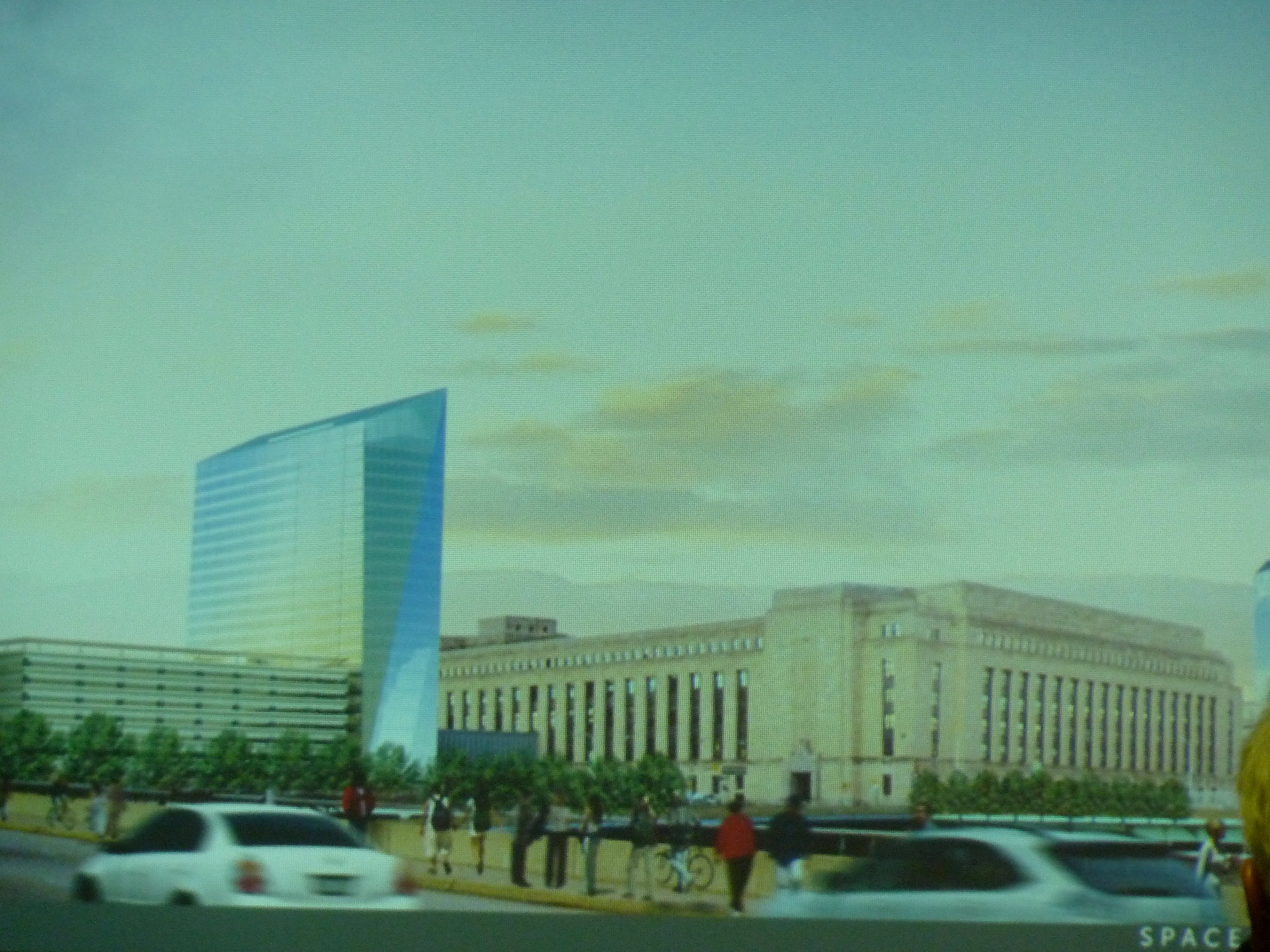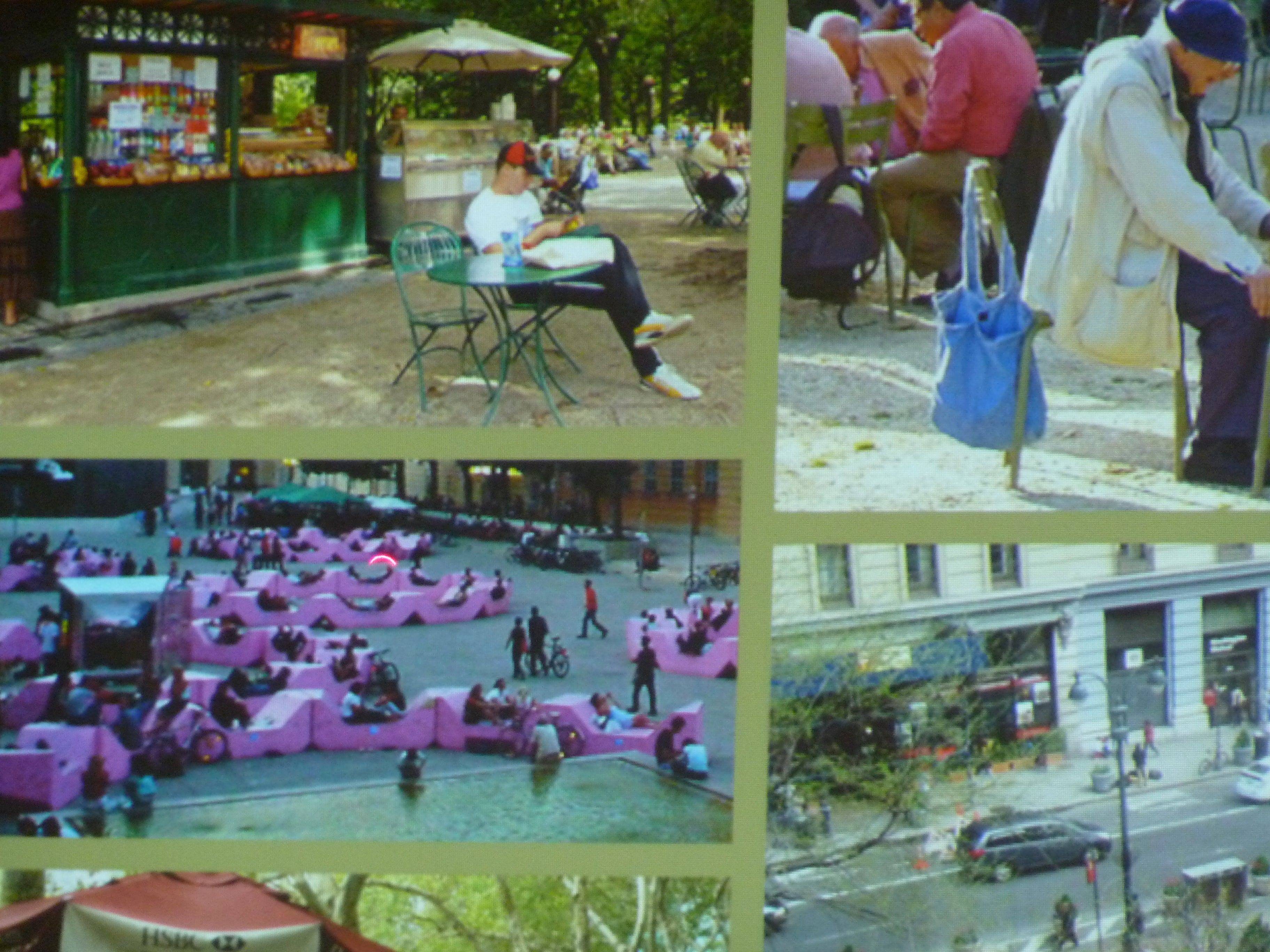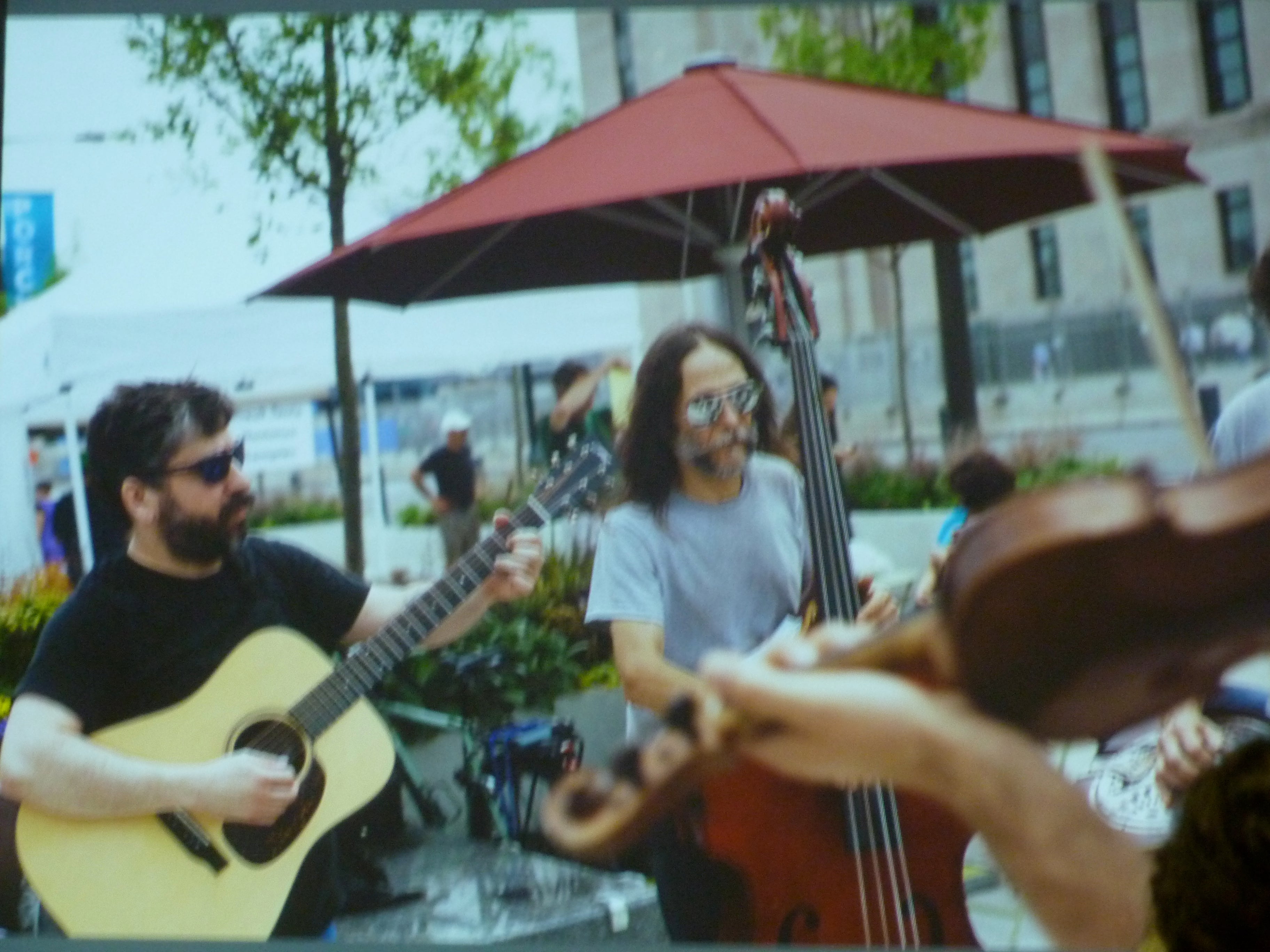Placemaking the Lighter, Quicker, Cheaper way
With a few more parklets promised for this summer, and a couple of pedestrian plazas designed to return slivers of wide streets to walkers, Philadelphia is making, er, inroads on its continued battle with cars.
Those announcements, along with an avowed commitment to bringing bike share to the city, were the biggest takeaways from Monday night’s University City District presentation “Lighter, Quicker, Cheaper,” at the International House.
The good news was delivered by Andrew Stober, chief of staff for the Mayor’s Office of Transportation and Utilities, who ended the evening.
Matt Bergheiser, executive director of the University City District, opened the presentation by praising an “exhilarating year . . . driven by a reimagined sense of what’s possible.” Specifically, he and the others came to pay homage to The Porch, the new pedestrian area outside of 30th Street Station.
The group’s planning director, Prema Gupta, offered a more in-depth look at the evolution of the space and its intent to soften an area that she described as filled with “monolithic buildings and harsh landscape.”
Considering the facts that the station is the second busiest in the country, that so many people work in the vicinity, and that more buildings — offering some 5 million square feet of commercial space — are slated to come online, she said the area was ripe for such a development. Without the luxury of a large budget, though, the group looked at “lighter, quicker, cheaper” examples from New York and San Francisco for inspiration.
Elements from those cities that work to transform a public space, she said, include food kiosks and planters. The $300,000 Porch now offers such amenities, as well as moveable seating and programming that includes a Farmer’s Market on Wednesdays and regularly-scheduled music events. The District has already done some behavior mapping, Gupta added, and has surveyed users and reviewed desire lines that are emerging.
Such studies were, of course, the purview of William H. Whyte, whom the next speaker, Ethan Kent of the New York-based Project for Public Spaces, cited as a mentor. Kent, the son of PPS founder Fred Kent, began by zipping through a look at the 36-year-old organization, repeating one of its mantras: “place is always more important than parking.”
Kent praised Philly as “having some of the best walking streets in America,” and added that The Porch, in helping ease the transition from University City to Center City, addressed one of its few walkability weak points.
Kent then briefed the gathering of about 40 — including several planners from the city’s Planning Department — on PPS’ “Power of 10” axiom. Each city or region should strive for 10 major neighborhoods or destinations, each district or destination should try for 10 places or attractions, and each “place” (something like The Porch) should have 10 things to do, a layering of uses that creates synergy.
One component he left out: people. Just about every dreary downtown that’s been enlivened by a PPS project (such as Houston’s Discovery Green park and Detroit’s Campus Martius square) has had at the ready a huge body of office workers desperately craving something to do or somewhere to go at lunchtime, other than their desks, the company cafeteria, or the skyway eatery.
And that’s where Stober came in. Cities are experiencing big demographic shifts, he said, and when more people work at home, more empty nesters move in, and more young parents have children, there’s greater numbers and greater varieties of pedestrians looking for stuff to do.
Placemaking efforts, such as the stellar work that PPS engages in, are going to increasingly shift to the neighborhoods, then, he said.
And, so, while a much-protested bike lane will be removed from Chinatown, a parklet will come in. (Kudos to MOTU for not giving up!) New parklets will also be added in the Logan neighborhood, as well as on South Street, and two more are coming to University City. Three ped plazas will also arrive shortly — two in University City, and one at Stenton and Washington Lane in northwest Philadelphia.
Responding to a question from the audience, Stober said that he expects to see “significant movement” on the bike share issue, in particular because there’s been so much improvement in the city’s bike infrastructure, the industry has adequately addressed recurrent liability concerns, and the financial climate is finally reaching stability. He tossed out numbers like “$6 to $10 million” as a potential cost of such a program, and “1,500” bikes as a potential initial inventory.
Contact the reporter at jgreco@planphilly.com and follow her on Twitter @joanngreco
WHYY is your source for fact-based, in-depth journalism and information. As a nonprofit organization, we rely on financial support from readers like you. Please give today.






